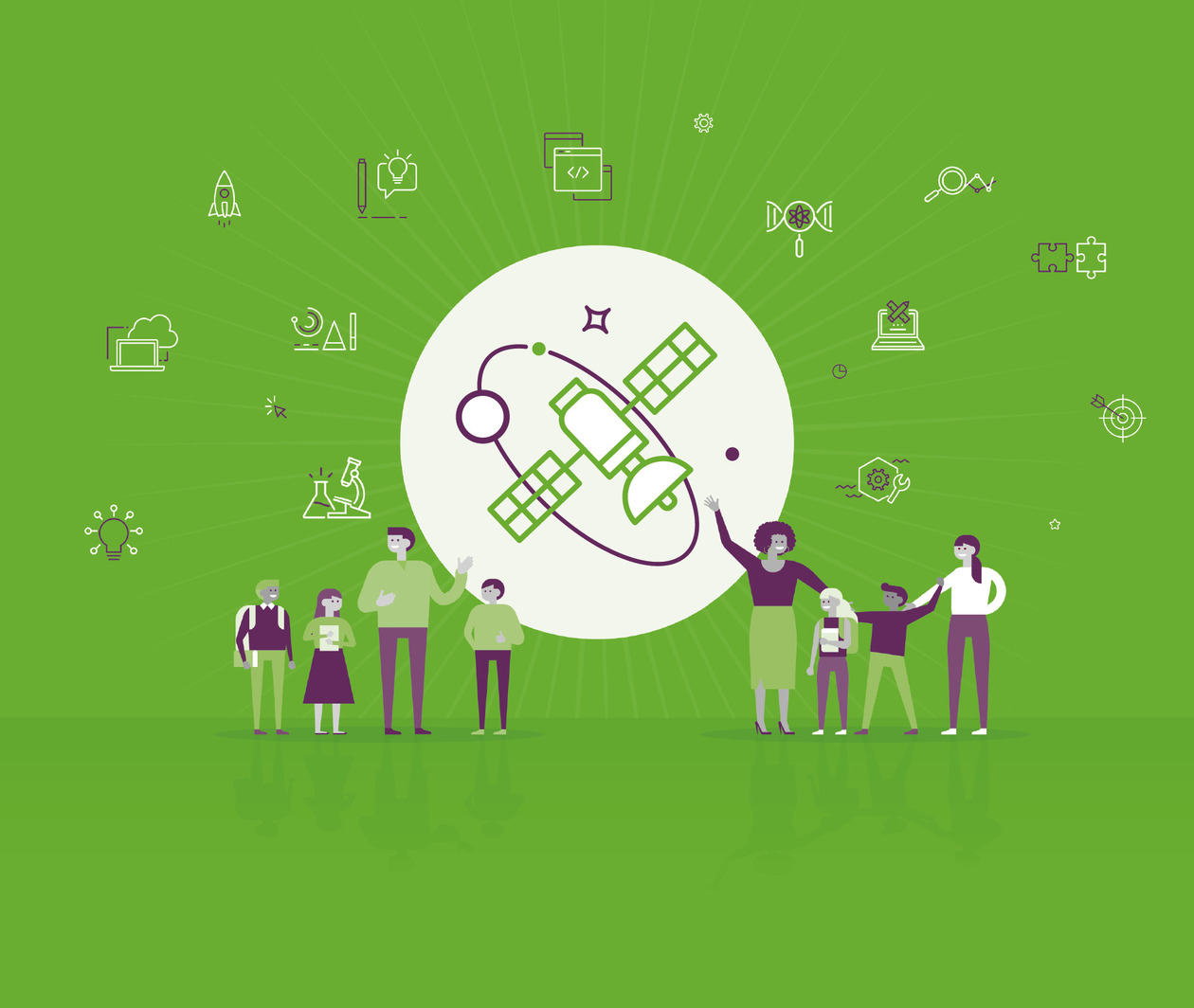Plan your own space week and learn how space exploration can inspire your primary school science students to work scientifically.

Duration
3 weeksWeekly study
3 hours
Teaching Primary Science: Exploring Space
This course has been certified by the CPD Certification Service as conforming to continuing professional development principles. Find out more.
Other courses you might like
This course isn't running right now. We can email you when it starts again, or check out these other courses you might like.
Browse more in Teaching
Explore the Moon, Mars, and deep space with your primary pupils
The thrill of space exploration is an exciting context for teaching the primary curriculum.
On this course, you’ll learn how to use examples from space exploration to teach science and technology in school, and discover hands-on activities for your pupils to enjoy.
You’ll address common misconceptions about space, and explore current and future space missions.
As you explore the solar system and beyond, you’ll learn effective ways to engage pupils in science and wider STEM activities, and build a curriculum plan using the context of space exploration to support your pupils’ learning.
What topics will you cover?
In this course you’ll draw upon a range of resources to develop your approach to teaching primary science with the context of space exploration. You will look at how to:
- engage children in working scientifically
- learn about current and future space missions and how they can be linked to the curriculum
- investigate forces and mechanisms in robotics
- explore practical activities based upon the search for exoplanets
- explore careers in space research and industry
- find out about how we can explore space using telescopes
Completion of this course can be used as evidence for the Space Education Quality Mark in the UK.
Learning on this course
On every step of the course you can meet other learners, share your ideas and join in with active discussions in the comments.
What will you achieve?
By the end of the course, you‘ll be able to...
- Investigate opportunities to link space exploration and space missions with your lessons to excite and inspire your pupils.
- Develop lesson plans that involve working scientifically, using space as a context.
- Explain using models, some of the scientific concepts and ideas involved in space exploration.
Who is the course for?
This course is for primary teachers of children aged 5-11 years. The course is aligned to the English National Curriculum, but teachers of other curricula will be able to explore how the topic of space exploration supports your pupils’ learning.
Who will you learn with?
ESERO-UK Teacher Fellow, working for STEM Learning, York. Using the context of space to inspire STEM teaching and learning. Teacher of physics, satellite engineer, father of two.
I spent 10 years working as a primary classroom teacher, 7 as a science subject leader. I've also supported schools as a leading science teacher before joining STEM learning as a primary specialist.
What's included?
This is a premium course. These courses are designed for professionals from specific industries looking to learn with a smaller group of like-minded individuals.
- Unlimited access to this course
- Includes any articles, videos, peer reviews and quizzes
- Certificate of Achievement to prove your success when you're eligible
- Download and print your Certificate of Achievement anytime
Still want to know more? Check out our FAQs
Learning on FutureLearn
Your learning, your rules
- Courses are split into weeks, activities, and steps to help you keep track of your learning
- Learn through a mix of bite-sized videos, long- and short-form articles, audio, and practical activities
- Stay motivated by using the Progress page to keep track of your step completion and assessment scores
Join a global classroom
- Experience the power of social learning, and get inspired by an international network of learners
- Share ideas with your peers and course educators on every step of the course
- Join the conversation by reading, @ing, liking, bookmarking, and replying to comments from others
Map your progress
- As you work through the course, use notifications and the Progress page to guide your learning
- Whenever you’re ready, mark each step as complete, you’re in control
- Complete 90% of course steps and all of the assessments to earn your certificate
Want to know more about learning on FutureLearn? Using FutureLearn
Learner reviews
Learner reviews cannot be loaded due to your cookie settings. Please and refresh the page to view this content.
Do you know someone who'd love this course? Tell them about it...
You can use the hashtag #FLSTEMPrimarySpace to talk about this course on social media.


